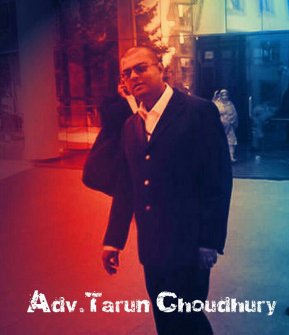Has Copyright Infringement laws Become less effective due to the ease of sharing content over the Web?
At the very onset it does appears that Copyright infringement laws have become less effective due to the ease of sharing content over the Web. Music streaming services, for example, have increased music consumption and the overall industry revenue, but it also has lessened album sales and song downloads. In 2017-2018, song sales decreased by 33%, while album sales declined by 26% from the previous year.
Â
Is Online Streaming Services Bad for Media Industry as a whole?
Looking at the report mentioned above, we can see that:
Although the total album consumption grew by 16.2%, the actual album sales declined by 26%. Even though there was an increase in total song consumption by 30%, the total song sales declined by 26%.
Â
Ineffective Copyright Laws regarding Streaming Services here are Some Concerns:
- All deserving parties do not get the correct shares of on-demand streaming service revenue.
- Artists and songwriters don't get paid their due, as most of the revenue goes to the large streaming companies.
- While the music industry has evolved, the laws governing it have remained stagnant.
- The current copyright law in India does not define interactive streaming nor state which exclusive rights it infringes upon, resulting in ambiguity and complications in proper payouts.
- There are also no laws that define what licenses on-demand streaming services need to obtain.
- Companies argue that digital downloads only exploit mechanical rights.
- Online personalized non-interactive radio services, meanwhile, only require public performance licenses.
- Terrestrial radio broadcasts only require performance licenses for musical compositions, which means only songwriters are paid but not performers.
- Terrestrial broadcasting companies argued that radio provided free advertising for record labels and their artists.
Only recently has it become generally accepted that interactive streaming services exploited both mechanical and public performance rights. Copyright holders are now fighting to change the detrimental guidelines that prevent artists from collecting the royalties they deserve.
- Lack of standardized payment rates raises another prominent issue.
- While listeners may not care what platform they use to stream music, royalty rare disparities significantly affect artists and record labels.
- Streaming services typically pay record labels hefty fees for an umbrella license of all their songs.
- These rates are undisclosed, but researchers estimated sound-recording royalties per stream.
- These are allocated to record labels, which in turn pay even smaller amounts to artists, depending on their record deals.
- The artists don't even know what the negotiated royalties are between their labels and the streaming services.
Another shortcoming has to do with the Copyright Act, to promote access to information and the Internet's growth. Unfortunately, while the Web continued to grow, the law didn't.
Since there is no Definite laws in India as regards to Online Copyright Infringement Liability, this has lead to granted online service providers a safe harbor, absolving them of financial liability in some instances of infringement. This meant that If a provider is unaware of users transmitting, caching, storing, or linking to copyright material on its site, it can't be held liable.
Thus due to lack of Online Copyright Infringement Liability law in India has given the online service providers to profit off of illegal materials. The provider can claim ignorance and remove the material only once a copyright holder submitted a complaint. However, materials removed are often quickly re-uploaded, adding to the gap.
Â
What Can Copyright Holders Do to Protect Their Creative Work?
- An urgent amendment to the Copyright and include Online Copyright Infringement Liability law could be an answer. By adopting a systematic approach to protecting copyright for digital media, that will prevents unauthorized redistribution of digital media and restricts ways consumers can copy content they've purchased.
 - These products embed code in copyrighted material to prevent copying.
One way to limit the amount of time for accessing content is by controlling how many times a song can be played depending on how much money the user paid. A user can also be limited to playing content only on a registered device. In this case, limitations can be enforced based on a user's IP geolocation. Content owners can impose limitations based on any user's unique identifier, in this case, his IP address.
 - Blocking the IP address of proven copyright infringers can also be imposed. They won't be able to share content illegally, after all, if they can't access it. This approach is one way to ensure that copyrighted material doesn't end up in P2P sharing platforms like torrent sites.
Although this is by no means a one-trick pony, it at least limits content access to the right individuals. Augmented with IP geolocation tools that can prevent unauthorized access, it would be more effective.
Â
Online Copyright Registration in India:
We offer copyright registration right from your desktop
Call us at Ph no: 989124448 / admin@legalserviceindia.com
- Copyright Registration Process
- Click on the link Berne Convention to see the list of countries where your copyright stands valid when registered in India
- Also check Copyright Registration procedure in India and Copyright law in India
- Note* Copyright Certificate issued by Government of India - Copyright Certificate
Latest Articles on Copyright Law:
- Guidelines For Implementation of Section 209 IPC In IPR Matters
- FAQ on Copyright Registration
- Copyright Societies
- Cyberspace A Two Edged Sword For Copyright
- Remix culture: Impact on Copyright owner of musical works
- Copyright Laws in India
- How do you Register your Creative work with the Copyright Office in India - Registration of Copyright
- Statutory Licence for Broadcasting or Literary And Musical Works And Sound Recording
- What cannot be copyrighted in India
- Tips To Hire A Copyright Lawyer In India
- Strengthening Consumer Protection Against Abuse of Intellectual Property Rights


